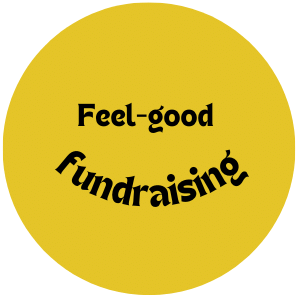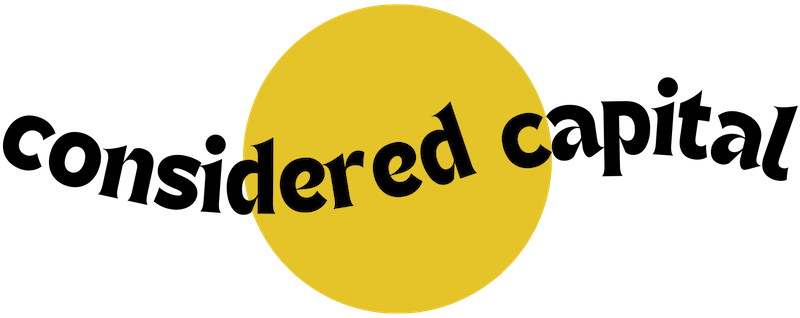How Library of Things pioneered purpose-driven growth and funding
with Emma Shaw, co-founder of Library of Things
How Library of Things pioneered purpose-driven growth and funding
with Emma Shaw, co-founder of Library of Things
Emma Shaw is the Co-founder of Library of Things, a purpose-before-profit company she started with friends Rebecca Trevalyan and Sophia Wyatt. Emma is one of our experts on The Alternative Funding School. Below, she shares her experience of raising patient, and purposeful investment.
Tell me about Library of Things
Library of Things is all about creating a very desirable alternative to wasteful consumerism. Rather than buying things like drills and sewing machines that you use once or twice a year, why not rent them from somewhere local, why not learn how to use them along with your neighbours.
In terms of our funding, we started completely bootstrapped, operating similarly to a volunteer-run non-profit for 4 years, hopping from one grant to the next and never really planning more than 6 months ahead. We weren't growing our potential and knew we needed to change.
So, in 2018, we worked with a brilliant lawyer and a social investment advisor to redesign our legal and governance structure to open ourselves up to more funding. We came up with a structure similar to steward ownership. We have a for-profit, for-purpose company with a mission lock and a guardian share. With this model, we can raise external investment and keep control because our investors have non-voting shares.
We raised an early pre-seed round of half a million pounds from 22 individuals and one institution that lasted us for two years whilst we were growing from one to seven Libraries of Things in London and building our technology and our platform to make that possible. So far we've raised 1.5 million pounds with that same structure. We have 275 investors because part of that has been equity crowdfunding, which has really grown our investor network.
Why didn’t you go down a traditional route?
“We accidentally ended up raising non-traditional funding, but it wasn't like we set out to do that."
A word: INDEPENDENCE.
I have two co-founders, and we have always been on the same page: we want to create a long-term, sustainable, healthy, revenue-generating company with a clear purpose. We're focused on the business, not necessarily just selling the company for an exit.
In terms of ownership and control, we wanted that to be held by the team. Those closest to delivering that mission day to day are the ones who know how to make the best decisions. So, we wanted that ownership and control to stay with the team.
“In trying to do the traditional route, we realised that we were at risk of losing our integrity, compromising it or selling out, or being beholden to this other stakeholder that really had power over us rather than shared power."
Going down the grant funding, debt funding, or venture capital routes amounted to losing independence, whether to a VC's exit ambition or to a grant funder's mission.
“Our offer is really about our investors committing to putting the mission first before financial interests, but as a result of us delivering that mission and delivering our purpose, we can share in the financial success of that with them."
On the challenges of fundraising as a woman:
All three co-founders are women. This, alongside an unconventional structure where we put purpose before wealth creation, makes it challenging to raise funding. It's hard to know how much just the gender thing plays a part in that, but I think there is definitely a gender dynamic. I spent a lot of time at networking events that felt like being at my like my dad's work do. There is a very specific demographic of generally older white men who hold a lot of capital who have the free capital to invest.
How did you find the “right” investors?
It's like dating. You have deal breaker things, and then your nice to haves. We wrote that out like a scorecard! When we send out emails to investors, we would say, "Hi, we're Library of things and we're looking for X Y Z. Are you that person? Do you know somebody? This was what we're offering? - can we chat?"
And when they come back with, "we want to invest in you, but these are our terms", we could say, "is that one of our deal breakers or is that something we can negotiate on?"
One of our hard terms was our guardian share in our legal structure - an absolute failsafe that we stay true to the mission as the company grows. For example, selling the company is possible with our structure, but it can only be done in a way that furthers the mission. This was a major deal breaker for us - many funds would want to invest, but with the ability to sell the company to the highest bidder, regardless of who they are. We turned down quite a few investors because of that.
Some investors will be more values-aligned. It's like a marriage - we didn't want people who weren't going to micro-manage us - we wanted them to trust us to make the right decisions, but offer up their expertise and advice when we needed it, for example, people with expertise in retail and tech.
Regardless of how much evidence, traction or credibility we had, regardless of the funky structure, the primary reason people invested in us came from their trust in us personally and their willingness to back us specifically.
When do you think is a good time to fundraise?
There's definitely a tipping point. You'll probably know when you get there. The most helpful thing you could do is bootstrap, and grow the company through revenue. You know that you've worked on the business as hard as you can to get it to that point.
It's reasonable that you'd need a cash injection, but it's not the first port of call, and to be successful in fundraising, demonstrating that you've got traction, you've got customers or potential customers, and that your costs are kind of relative to that is essential because you'd have people looking at the financial side of the business.
Bootstrap as long as physically possible.
Watch the video above for more details about Emma's funding journey.
Top takeaways
- In 2018 Emma and her co-founders decided to redesign their legal and governance structure to open themselves up to more funding possibilities
- They ended up raising non-traditional funding because they realised they were at risk of losing their integrity, compromising it or selling out
- Emma emphasises the importance of ensuring your purpose and mission are reflected in your company structure and not just using the same models as everyone else
- They also caution that transitioning from traditional structures and VC funding to an alternative does come with some challenges and can be costly, especially when involving lawyers and financial advisors
- Lots of "impact" funds still have the same unreasonable return expectations of VCs and it's challenging to find funds that have a different outlook
- They describe finding the right investors as feeling a lot like dating - you have deal breaker things, and then your nice to haves
- Terms like for-profit and non-profit can get a little fuzzy - it's not always necessary to pigeonhole yourself down to one thing. Allow for flexibility - and when speaking to others, get a sense of what these terms mean to THEM before using them as labels or identifiers.
Spread the word on alternative funding options with your network by clicking below
Ways we can support you on your fundraising journey
If you're ready to find your fundraising confidence, then we provide products and programmes to support you along the way. Check out our current offerings below.

Hands-on support for purpose-driven organisations raising mission-aligned funding all over the globe. 97% of alumni would recommend us to founder friends.

Never miss a UK funding opportunity again. Search for new grants, accelerators and more using our exclusive LIVE Funding Database which is updated weekly and curated for our community fundraising in the UK.

If you are looking for an introductory course into raising funding as an impact organisation, this is for you. Identify the best next step on your fundraising journey and meet incredible purpose-led founders along the way.

Connect and learn
Accelerators & Funders
contact@consideredcapital.io
Log in to our other platforms below
